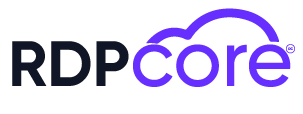Linux is an open-source, Unix-like operating system. Initially developed by Linus Torvalds in 1991, Linux is now used by millions of users and devices worldwide. Key advantages of Linux include security, customizability, and cost-effectiveness.
1. What is Linux?
Linux is an open-source operating system that derives from Unix. It comes with a kernel and is available in various distributions. Each distribution comes with different software and features, allowing users to choose based on their needs.
Key Components of Linux:
- Kernel: Acts as a bridge between hardware and software, managing hardware resources.
- Libraries and Tools: Supports kernel functionalities with additional libraries and utility programs.
- User Interface: Provides interaction through command-line (CLI) or graphical user interface (GUI).
2. Features of the Linux Operating System
Linux has many features that distinguish it from other operating systems:
- Open Source: The source code is open to everyone, allowing users to view, modify, and distribute it. This promotes community contributions and transparency.
- Security: Linux offers robust security features, protecting against malicious software through user permissions and security policies.
- Customizability: Users can customize the operating system according to their needs. Various desktop environments and software packages are available for a personalized experience.
- Stability and Performance: Known for high performance and stability, Linux is preferred for server and critical applications.
- Free and Cost-Effective: Typically offered for free, reducing costs by eliminating licensing fees.
- Strong Community Support: Supported by a large and active user community, with issues often resolved through forums, documentation, and community support.
3. Linux Distributions (Distros)
Linux is available in various distributions to meet different needs. Each distribution provides a tailored system for specific requirements:
- Ubuntu: A popular distribution known for its user-friendly interface, suitable for beginners.
- Debian: Ideal for users seeking stability and reliability.
- Red Hat Enterprise Linux (RHEL): Offers commercial support and security updates for enterprise users.
- CentOS: An open-source version of RHEL with similar features.
- Fedora: Known for innovative features and up-to-date software packages.
4. Uses of Linux
Linux has a broad range of applications:
- Servers: Widely used for high-performance and reliable server environments.
- Personal Computers: Provides desktop experiences through various distributions.
- Embedded Systems: Utilized in IoT devices and embedded systems.
- Artificial Intelligence and Data Science: Preferred for data analysis and machine learning projects.
Conclusion
Linux, with its robust features, customizability, and cost-effectiveness, appeals to a broad user base. Its open-source nature and extensive distribution options make it adaptable to various user needs. With advantages like security, performance, and community support, Linux is an ideal choice for both individual users and businesses.
Leave a comment
Your email address will not be published. Required fields are marked *




